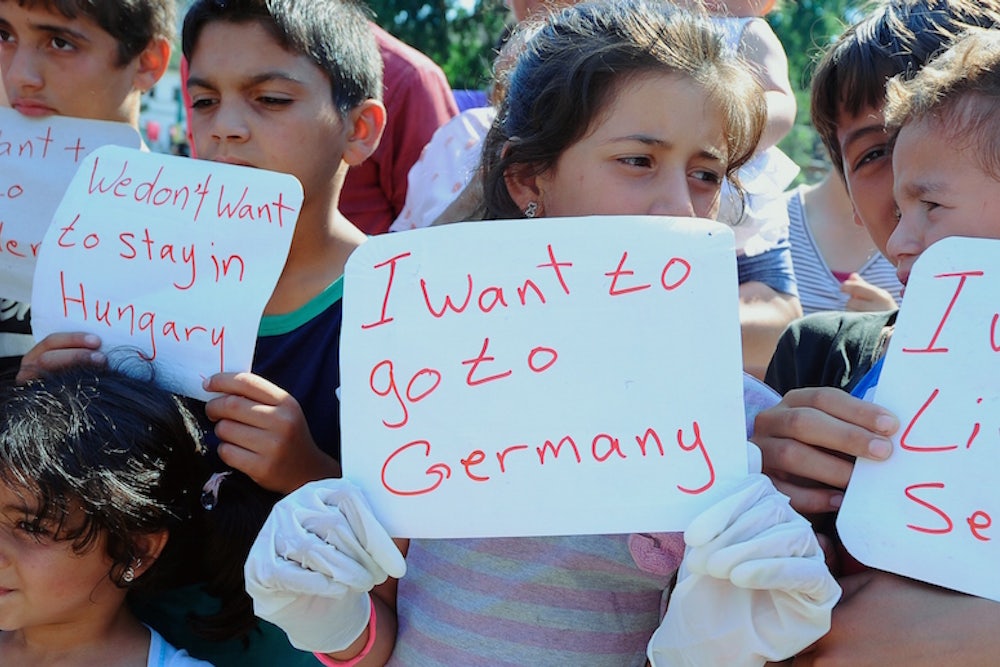As dramatic scenes unfold across Europe in the worsening migrant crisis, Americans are wondering why the U.S. is not intervening to help deal with the thousands of refugees pouring into the European Union.
Europe’s Halting Response to Migrant Crisis Draws Criticism as Toll Mounts. But what is the U.S. doing to help? http://t.co/IiRSMTJEpa
— Richard Davies (@DaviesNow) August 28, 2015Still wondering why the U.S. doesn't do more to help Syrian refugees? http://t.co/LVeTmguE4w
— lolita brayman (@lolzlita) September 1, 2015As upsetting as the scenes in Europe are—people laying down on Hungarian train tracks for fear of being sent to refugee camps, ships with human cargo sinking in the Mediterranean—it isn’t Europe that the U.S. should be helping. One of the wealthiest regions on earth does not need American money, and Europeans, for all the media attention, are not bearing the brunt of the crisis. There are now 4 million Syrian refugees, according to the U.N., and the majority of them live in Lebanon and Jordan. Syrian refugees make up over one-third of Lebanon’s population of 4 million, doubling the country’s unemployment rate and costing its economy $7.5 billion between 2012 and 2014. In Jordan, Syrians have become one-fifth of the population of Amman.
Those are the places where American aid is most needed, and the U.S. has provided over $1.4 billion in humanitarian assistance for Syria and its neighbors—more than any other country. That money has supported food, vaccination, women’s health, and education programs. One food voucher program has helped 1.3 million Syrian refugees in five neighboring countries.
As for refugees themselves, the U.S. resettles more each year than the rest of the world combined, according to Kathleen Newland, co-founder of the Migration Policy Institute. Between 2010 and 2014, 71 percent of resettled refugees found homes in the U.S. Most of them are not currently from Syria but rather Bhutan, Burma, and Iraq. That’s because the U.S. takes them through two means: those apply for asylum upon arrival, and refugees who are processed by the U.N. abroad and referred for resettlement. Those in the former group require the financial wherewithal to travel halfway around the world, and those in the latter must wade through a slow, bureaucratic process, filled with paperwork, medical checks, and security screenings. Most of the resettled refugees spend up to 20 years in processing before arriving. For Syrians in particular, the security screenings are the most difficult hurdle.
“For Syrians, the most serious obstacle is the security advisory opinion,” Newland said. “In a refugee situation where people have left their homes without documentation, it’s very hard to pin down what their associations are, very hard to prove the negative, to prove that they don’t have a close relative fighting with ISIS or any of the other groups the U.S. government considers a threat.”
Of course, the U.S. can always do more to help. Anne C. Richard, assistant secretary of the Bureau of Population, Refugees, and Migration, has announced a dramatic increase in the number of Syrians allowed to resettle in the U.S. this year, from about 350 up to 10,000. But the European crisis, as heart-wrenching as it is, is not where our help is most needed.
